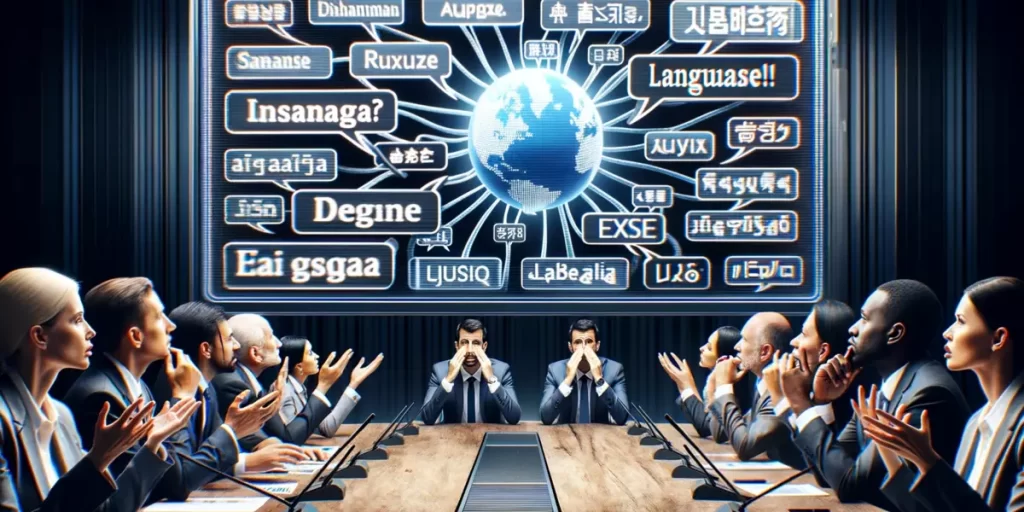Have you ever wondered why some management teams excel at communication while others struggle, despite having brilliant minds and innovative ideas? Is it possible that unseen barriers are standing in the way of effective communication in management?
In this article, we’ll explore the top barriers to communication in management, including factors such as cultural differences, information overload, and unclear messaging. By understanding these obstacles, managers can learn how to navigate them more effectively and create a more cohesive, high-performing team.
Communication is a fundamental element of successful management. It is essential for any successful organization and the success of its employees.
Barriers of Communication in Management
In management, effective communication is essential to achieve organizational goals, maintain a healthy work environment, and foster teamwork. However, several barriers can hinder effective communication in management. Some of these barriers are:

Language and cultural differences
Language barriers and cultural differences can lead to misunderstandings or misinterpretations, affecting communication effectiveness. Embracing diversity and promoting cultural awareness can help overcome these barriers.
Hierarchical structure
A rigid hierarchical structure can create communication barriers as information may be filtered, distorted, or delayed as it passes through different levels. Encouraging open communication and adopting a flatter organizational structure can alleviate this issue.
Lack of clarity
Ambiguous messages, jargon, and unclear instructions can lead to confusion and misunderstandings. To avoid this, managers should ensure their messages are clear, concise, and easy to understand.
Information overload
Excessive information can lead to confusion and make it difficult for employees to comprehend and process the message. Managers should prioritize information and communicate only what is necessary.
Emotional barriers
Personal feelings, biases, and prejudices can distort messages and hinder effective communication. Managers should strive to remain objective and empathetic when communicating with their team members.
Poor listening skills
Effective communication requires active listening. Managers should practice active listening to understand their employees’ concerns and ideas better.
Inadequate communication channels
Using inappropriate communication channels can lead to miscommunication or information loss. Managers should choose the most suitable communication channels for the intended message, such as face-to-face meetings, emails, or instant messaging.

Technological barriers
Technical issues, such as poor internet connections, software glitches, or outdated devices, can impede communication. Regularly updating technology and ensuring proper training can help overcome these barriers.
Noise and distractions
A noisy work environment or frequent interruptions can negatively impact communication. Managers should create a conducive environment for communication by minimizing distractions and ensuring that employees have quiet spaces for focused discussions.
Fear of repercussions
Employees may hesitate to express their opinions or concerns if they fear negative consequences. Managers should foster a culture of openness and trust where employees feel comfortable sharing their thoughts and ideas without fear of reprisal.
Addressing these barriers can significantly improve communication in management and contribute to a more productive and harmonious workplace.

Conclusion
In conclusion, effective communication is crucial for successful management and the overall performance of an organization. By identifying and addressing the common barriers to communication, managers can create a more collaborative and transparent work environment that fosters innovation, increases productivity, and leads to higher employee satisfaction.
Frequently Asked Questions (FAQs):
Why is effective communication important in management?
Effective communication in management is vital for sharing information, setting clear expectations, providing feedback, motivating employees, and resolving conflicts. It promotes teamwork, enhances decision-making, and boosts overall organizational performance.
How can managers improve their communication skills?
Managers can improve their communication skills by practicing active listening, providing clear instructions, offering constructive feedback, staying open-minded, being empathetic, and choosing appropriate communication channels based on the situation.
What is the role of technology in overcoming communication barriers?
Technology plays a significant role in overcoming communication barriers by providing various tools and platforms that facilitate real-time communication, collaboration, and information sharing. However, ensuring that employees have access to the necessary resources and training to use these technologies effectively is essential.
Boko Ducky has over 10 years of experience in helping individuals and organizations improve their communication skills.



